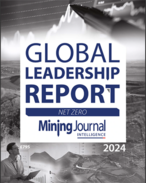This article is 4 years old. Images might not display.
MiningNews.net is making some of its most important coverage of the COVID-19 pandemic freely available to readers. For more coverage, please see our COVID-19 hub. To subscribe to MiningNews.net, click here.
Rarely at the top of the buy list of leading investment banks Australian-listed Alumina, which takes its name from what it produces, and Iluka Resources, a titanium minerals and zircon specialist topped a stress test conducted by investment bank Citi.
While both companies are undoubtedly high-class in their specialised fields, they have always played second fiddle to sector leaders such as BHP, Rio Tinto, Anglo American and Glencore.
Citi doesn't explicitly rate Alumina and Iluka over better-known miners but it has upgraded investment advice on both thanks to their strong financial position and steady earnings which should enable consistent dividend payments.
In other words, the bank is saying that in troubled times boring can be best.
Alumina, which is closely tied to its business partner, US-based aluminium maker, Alcoa, is said to "stand out" as an appealing investment thanks to its ability to pay a reasonable dividend even at current (depressed) alumina prices - generating a 12% yield next financial year on a base case and 8% under a stress test.
Iluka is a winner from its core titanium minerals operations and from the value being created from the upcoming spin-off of a business holding a valuable iron ore royalty over BHP's next big Australian mine, South Flank.
In terms of potential share-price moves Citi, which published its stress test report late last week, reckons Alumina has a 12-month target share price of A$2.30, which is 62c above the latest on-market price of $1.68. Iluka cold be heading for $9.80, or $1.78 above the stock's latest price of $8.02.
Those prices, while looking attractive, should be taken as a guide given the extreme volatility across all financial markets.
But they are also a pointer to the potential value in quality mining companies which have been sold off without regard to the underlying strength of the business.
Citi prefaced its stress-test report by warning clients that 2020 would be a difficult year for commodity markets and the mining industry despite the potential for demand from China to improve as it overcomes its coronavirus growth setback.
Copper, for example, is expected to slip a little lower from its current US$5500 a tonne to around $5300/t. Palladium, the recent star of the commodities sector could drop by 20% to around $2100 an ounce and iron ore, which has held up strongly in the belief that Chinese government spending will stimulate steel demand could "hit an air pocket" and fall back to around $70/t.
Whatever governments might do to mitigate the effects of a global economic slowdown is unlikely to have a significant beneficial effect on commodity prices this year, according to Citi.
"With interest rates already low, there is a question mark as to the efficacy for this round of interest rate cuts," the bank said.
"Whether we get a rebound in commodity demand down the track will depend on both monetary and fiscal stimulus, and we are unclear on the quantum of the latter."
That cautious view of commodity markets led Citi to conduct its stress tests, in the bank's words because "things will probably get worse before they get better" with aims being to assess balance sheet resilience and near-term earnings effects.
Stress on iron ore miners was tested by lowering the iron ore price to $60/t, copper was priced at $5500/t, Alumina was lowered to $300/t and oil, which has become the odd-man out in the exercise was lowered to $50 a barrel - a level passed rapidly earlier this week, a prime example of how quickly commodity markets are moving.
"Financial year 2021 earnings impacts (from the stress-tests) are material," the bank said. "BHP's earnings are down between 30% and 40%. Rio Tinto is the most defensive with a 21% earnings-per-share impact."
"Looking to a recovery in commodity prices in 2022 and there is still meaningful downside to 2022 earnings.
"Unsurprisingly, dividend yields are lower under the stress test. Yields for BHP and Rio Tinto in 2022 under the stress test are 5% and 5.4% (though that was before the worst of the oil-price crash)."
Citi said Alumina stood out for its ability to pay a reasonable dividend even at current alumina prices.
"Under our stress test, Alumina can still generate A15c a share of dividends in 2021 at US$300/t alumina and with shares down 17% over the last three months this represents an 8% dividend yield."
Iluka's share price fall means it is now trading at a substantial discount to Citi's valuation of A$9.80 a share.























